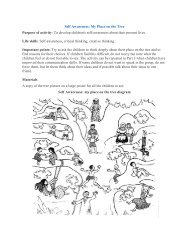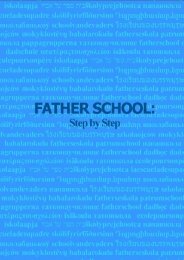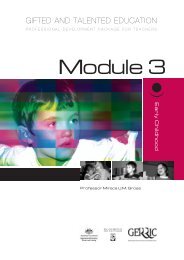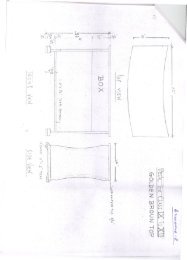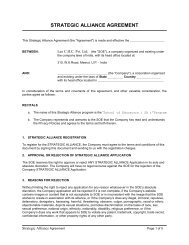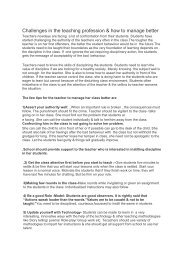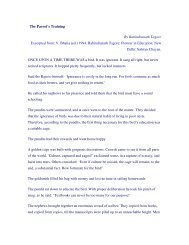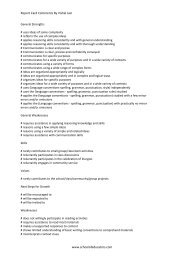Download (PDF, 533KB) - School of Educators
Download (PDF, 533KB) - School of Educators
Download (PDF, 533KB) - School of Educators
- No tags were found...
Create successful ePaper yourself
Turn your PDF publications into a flip-book with our unique Google optimized e-Paper software.
vision <strong>of</strong> education. Children loved him because he was so human and understanding andalso because he was very intelligent and had a first-rate mind.During the last one week, so many things were happening in the city where he livedthat he was full <strong>of</strong> anguish and even anger. There was a report that a group <strong>of</strong> studentsfrom the local college had burnt a bus in which they were travelling because <strong>of</strong> a quarrelwith the bus conductor which lead to blows and finally to the destruction <strong>of</strong> the bus itself.It was a government bus and this meant it was the property <strong>of</strong> the public. He thought <strong>of</strong>the state <strong>of</strong> public property elsewhere and realised that while people cared a great deal forthe things that belonged to themselves or their families they treated common propertylike trams, post <strong>of</strong>fices, banks, railway stations, pavements’, roads, <strong>of</strong>fices, guest houses,parks and gardens with no respect. He wanted his children <strong>of</strong> the ninth class to observeall this and learn how to respond to such situations before they left school. So he talked tothem, pointing out what was happening and encouraged them to make a thorough study<strong>of</strong> their own mohalla, their own locality.They set out in groups with notebook and pen and visited public places around theirlocality and noted down whether public property had been damaged or was intact and, ifdamaged, the nature and extent <strong>of</strong> such damage. This was a fact-finding study andincluded visits to the local hospital, the railway station which was quite near by, andsome government <strong>of</strong>fices, apart from the pavements and a children’s park, (that was whatit was supposed to be, but in reality was full <strong>of</strong> rubbish and the bars and the swings wererusty and broken and no child ever came there). They noted down all the defects andcame back to class.A discussion followed on what action should be taken. Some pupils advocatedcollecting money and repairing them themselves. But then they realised this course <strong>of</strong>action was <strong>of</strong> limited value because people would continue to destroy these things all thesame. Another suggestion was that they should meet the <strong>of</strong>ficials at their <strong>of</strong>fices and talkto the managers, directors, etc. to ensure that their <strong>of</strong>fices and property were taken care <strong>of</strong>and were not meant to be used without care. Then they realised that the managers maynot take school students seriously. They may be nice to them but explain that they werehelpless. The public had to cooperate and this was difficult. So they gave up that line <strong>of</strong>action. One student suggested that they write in ‘Letters to the Editor’ in dailynewspapers and bring to the attention <strong>of</strong> several readers that such violence anddestruction ruined our own mohalla, that public property belonged to each one <strong>of</strong> us andeach one <strong>of</strong> us must take care <strong>of</strong> it. They approved <strong>of</strong> the idea and a group startedworking on several drafts <strong>of</strong> such letters.This led to a discussion on whether it was possible to really change the beliefs andideas <strong>of</strong> other people and how to create public awareness and a sense <strong>of</strong> civicresponsibility. Although many suggestions were put forward the general feeling <strong>of</strong> theclass was that since society is made up <strong>of</strong> individuals, each person must feel theresponsibility and act in a way showing utmost care and respect for public property andpublic places and only then would their mohalla change. So strongly did they feel this,under the inspiration <strong>of</strong> their teacher, that each <strong>of</strong> them in the ninth class decided to dothemselves first what they expected others to do. As the old saying goes: ‘Charity beginsat home’; so they started picking up pieces <strong>of</strong> paper in the quadrangle <strong>of</strong> the school andthrowing them into dust-bins. They attended to leakage <strong>of</strong> taps to avoid wastage <strong>of</strong> water.



